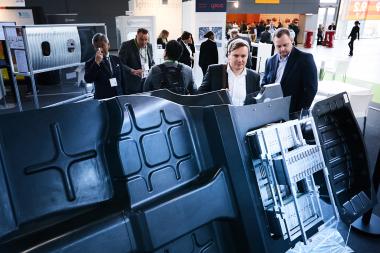DIGITAL PROCESS CHAIN SECURES THE FUTURE OF LIGHTWEIGHT CONSTRUCTION
- At COMPOSITES EUROPE from 10 to 12 September
- Incubator of ideas for multi-material lightweight construction
- „Ultralight in Space“: Market study examines lightweight construction trends in aerospace
Whenever there’s movement, mass and weight quickly become destroyers of energy. From 10 to 12 September, the Lightweight Technologies Forum (LTF) at COMPOSITES EUROPE in Stuttgart will show how lightweight construction contributes to more efficient and better cars, airplanes and machines. The focus at the Forum will be on the commercially viable implementation of cross-material and holistic lightweight construction systems. The way to get there is through the digitalisation of the process chain.
From the idea to the component – that’s the path the Lightweight Technologies Forum aims to illuminate and support. To that end, the forum will gather current lightweight construction projects in Stuttgart, including from automotive engineering, aerospace and mechanical engineering – precisely those industries whose stringent material, safety and reliability demands make them idea generators for many other industries.
The commonality that runs through all the projects: a consistently digital process chain contributes significantly to the implementation of innovations. Another focus area is connecting and joining technology in multi-material lightweight construction.
"The Lightweight Technologies Forum is conceived as a cross-industry and cross-material incubator of ideas, a place where all stakeholders can consider new concepts. For that, we’re bringing successful flagship projects to Stuttgart”, says Olaf Freier, who on behalf of organiser Reed Exhibitions is responsible for the programme of the forum.
The growing significance of digitalisation and bionics
Support in putting together the forum programme comes from Automotive Management Consulting (AMC). The consulting company specialises in lightweight construction strategies, processes and structures in the automotive industry. “Lightweight construction requires comprehensive, systematic thinking”, says Rainer Kurek, the managing director of AMC. “The most important key factor, though, is the digitalisation of the process chain. Only virtual and simulation-driven design work can bring about competitive lightweight construction products, because they’re launched faster and ensure process safety while costing far less in development”, Kurek adds.
„Ultralight in Space“: Market study on lightweight construction trends in the aerospace industry
When it comes to ultra-lightweight construction, space travel has played a pioneering role since its inception, having driven many disciplines to new record performances. In cooperation with the Luxembourg-based aerospace suppliers GRADEL, AMC are currently conducting a market study to examine the latest technological trends. The results will be revealed at the LTF in Stuttgart on 10 September.
"Even though aerospace is a niche business: technical solutions that meet the stringent material demands here lead the way into the future, which in turn impacts other industries. That’s why it’s important to know the customer’s needs as well as the lightweight strategies, processes, structures and material decision-making of this market”, Rainer Kurek says assuredly.
Also underlining how important space travel is for the development of new technologies is Claude Maack, managing director of GRADEL: “All components are exposed to extreme conditions. Right from the launch of the rocket, they have to withstand enormous acceleration forces. In space, material must resist radiation exposure – and for many years. Then there are the high temperature differences from minus 185 to plus 200 degrees Celsius – alternating every couple of hours from one extreme to the other.“
The material question: Composites with biggest growth potential
Metals currently hold the largest market share among lightweight materials – but fibre-reinforced composites are said to have the biggest growth potential. More and more often they get to apply their strengths in lightweight construction. In the exhibition area, the LTF demonstrates how glass-fibre reinforced (GFRP) and carbon-fibre reinforced plastics (CFRP) play to their strengths in hybrid structural components.
On display, among other things, will be an ultra-lightweight seat by Automotive Management Consulting (AMC), Alba tooling & engineering and csi entwicklungstechnik GmbH, which was presented as a feasibility study – based on the lightweight construction innovation xFK in 3D – and virtual prototype at the 2018 LTF.
The innovative ultra-lightweight seat, which only weighs 10 kg, is based on a special winding process for fibre-composite components. The “xFK in 3D process” uses a resin-impregnated continuous fibre from which components are wound and produced without waste to match the load. Conceivable uses for the concept seat include the so-called hypercars, sports cars and the air taxis of the future. Just a few weeks ago, the prototype was presented to the public and swiftly recognised with the German Innovation Award.
Exhibitors will be presenting additional lightweight construction solutions in the adjacent Lightweight Area. Some examples include structural components, semi-finished goods, technical textiles, adhesives and resins for automotive engineering and aerospace.
Altogether, visitors of the Lightweight Technologies Forum and COMPOSITES EUROPE will meet 300 exhibitors from 30 countries who will come to Stuttgart to showcase the entire process chain of fibre-reinforced plastics – from materials to machines for processing to concrete application examples from automotive engineering, aerospace, mechanical engineering, construction, wind power, and the sports and leisure sector. Besides new products, a special focus of the trade fair will be on advances in process technologies for large-scale series production.
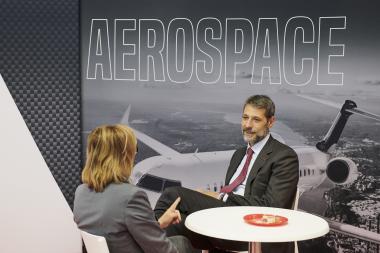 © Reed Exhibitions Deutschland GmbH
© Reed Exhibitions Deutschland GmbH
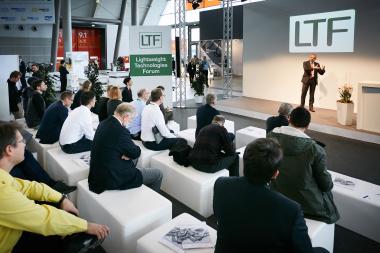 © Reed Exhibitions Deutschland GmbH
© Reed Exhibitions Deutschland GmbH
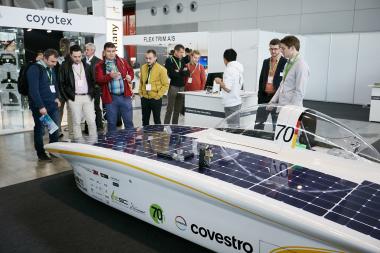 © Reed Exhibitions Deutschland GmbH
© Reed Exhibitions Deutschland GmbH
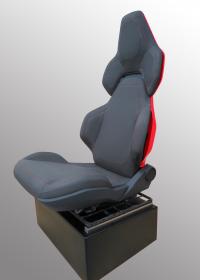 © AUTOMOTIVE MANAGEMENT CONSULTING GmbH
© AUTOMOTIVE MANAGEMENT CONSULTING GmbH
Reed Exhibitions Deutschland GmbH


